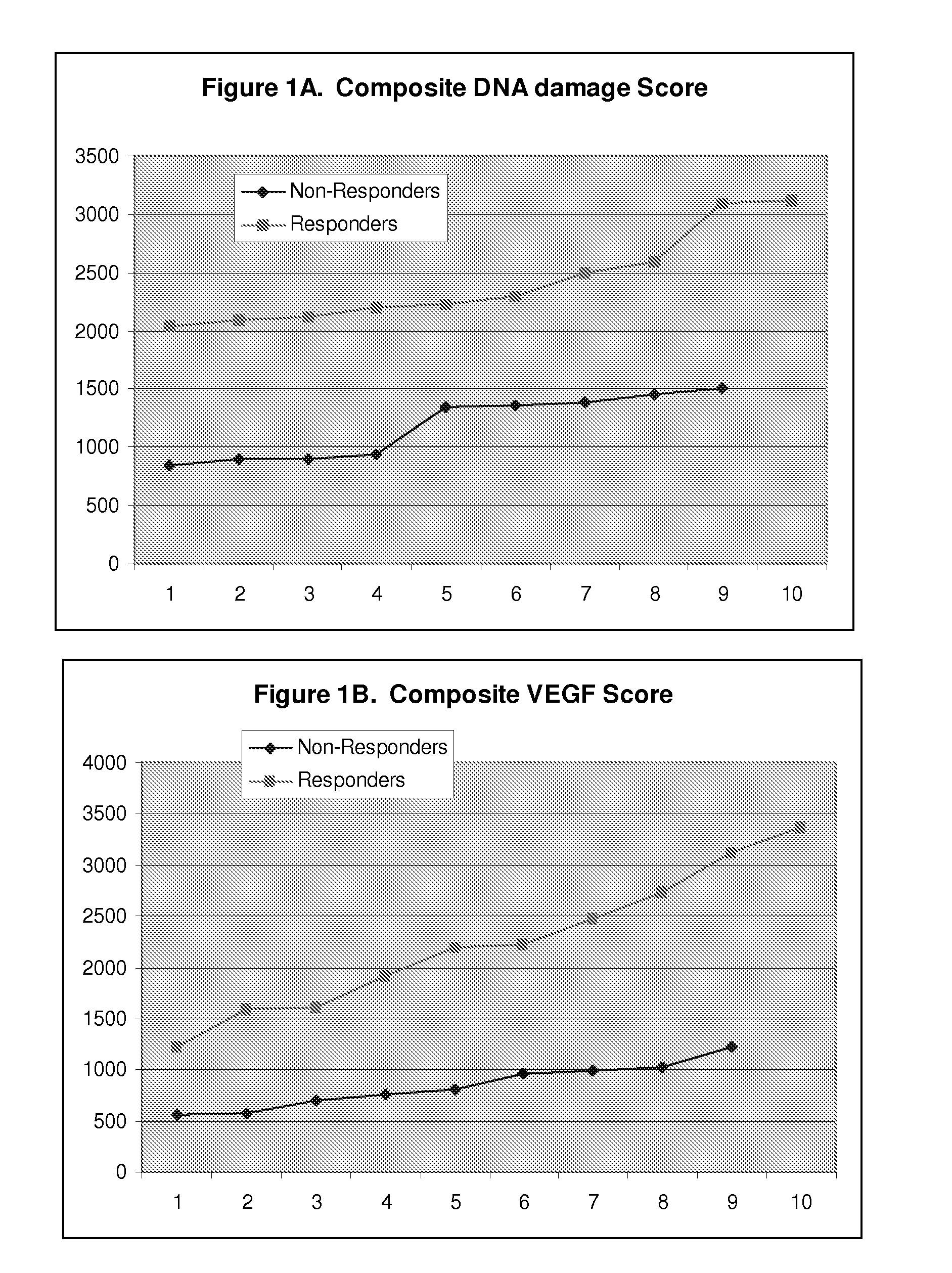Method of Predicting Non-Response to First Line Chemotherapy
- Summary
- Abstract
- Description
- Claims
- Application Information
AI Technical Summary
Benefits of technology
Problems solved by technology
Method used
Image
Examples
example
[0121]The following example is presented by way of illustration of the present invention, and is not intended to limit the present invention in any way.
[0122]The inventors used gene expression data derived from a prospective clinical randomized two arm Phase II chemotherapy trial for first line metastatic colorectal cancer to produce a gene signature that separates patients likely to respond (responders) to standard therapies from those that may not respond (non-responders). The trial involved more than 85 patients treated with one of two types of standard chemotherapy for colorectal cancer: (a) XELOX / AVASTIN and (b) XELIRI / AVASTIN.
[0123]The inventors combined the data from both arms of the trial to look for responders and non-responders to both standard types of therapy. More than 90% of patients with metastatic colorectal cancer will receive one of these regimens in standard practice today. A liver core biopsy was obtained from each patient's liver metastasis prior to initiation o...
PUM
| Property | Measurement | Unit |
|---|---|---|
| Level | aaaaa | aaaaa |
Abstract
Description
Claims
Application Information
 Login to View More
Login to View More - R&D
- Intellectual Property
- Life Sciences
- Materials
- Tech Scout
- Unparalleled Data Quality
- Higher Quality Content
- 60% Fewer Hallucinations
Browse by: Latest US Patents, China's latest patents, Technical Efficacy Thesaurus, Application Domain, Technology Topic, Popular Technical Reports.
© 2025 PatSnap. All rights reserved.Legal|Privacy policy|Modern Slavery Act Transparency Statement|Sitemap|About US| Contact US: help@patsnap.com

